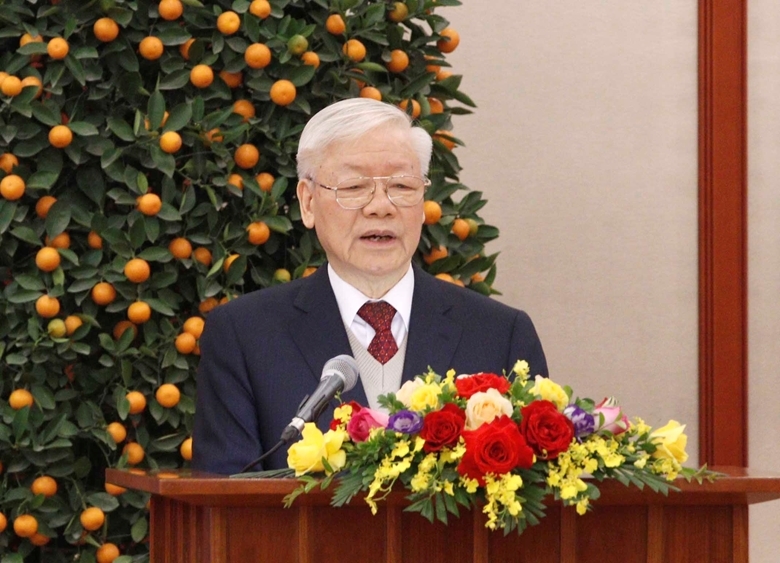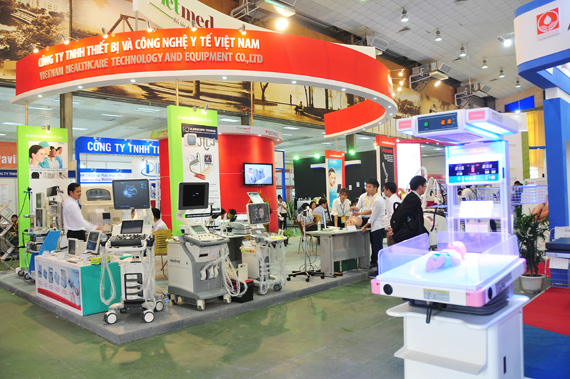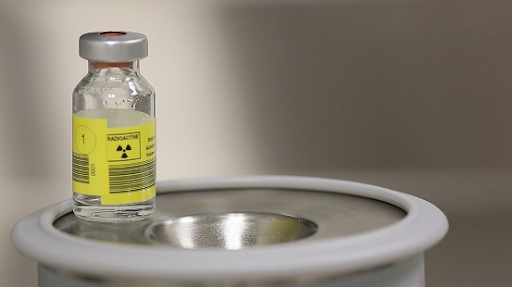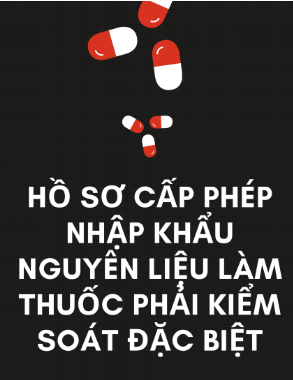 |
| General Secretary Nguyen Phu Trong - Head of the Central Steering Committee on preventing and combating corruption and negativity. (Photo: PC) |
Celebrating the 93rd anniversary of the founding of the Communist Party of Vietnam (February 3, 1930 - February 3, 2023) and the 10th anniversary of the establishment of the Central Steering Committee on preventing and combating corruption and negativity (February 1, 2013 -February 1, 2023), February 2, 2023, in Hanoi, the Central Committee of Internal Affairs and the National Political Publishing House Truth held the launching ceremony of the book "Resolutely and persistently fighting to prevent , combating corruption and negativity, contributing to building our Party and State increasingly clean and strong" by General Secretary Nguyen Phu Trong - Head of the Central Steering Committee on preventing and combating corruption and negativity.
The content of the General Secretary's articles, thoughts, and guiding views in this book are drawn from rich practice, demonstrating vision, clear intelligence, and close and decisive direction. , comprehensive and convincing of comrade General Secretary; contributing to clarifying our Party's theoretical thinking on the work of preventing and combating corruption and negativity and building and rectifying the Party.
The book is a very valuable document both theoretically and practically, and can be considered a "handbook" on the fight against corruption and negativity in our country. Through this book, domestic and foreign readers can better understand the policies, guidelines and determination to fight against "internal invaders", prevent, repel and strictly handle corruption and negativity of the Party and State. our country - a war without guns but extremely fierce and arduous.
In Part One of the book: Some issues drawn from the reality of the fight against corruption and negativity in Vietnam, including an overview article by the General Secretary re-evaluating the work of preventing and combating corruption and negativity in Vietnam since the establishment of the Central Steering Committee on Anti-Corruption (2013) until now; Comrade General Secretary has concluded and drawn valuable lessons to strengthen bravery and confidence from the rich practice of the fight against corruption and negativity in recent times. Therein lies the second lesson: “Preventing and combating corruption and negativity means "fighting internal invaders", that is, fighting bad habits and vices, especially the deterioration of political ideology, ethics, lifestyle, stealing, stealing, etc. stealing public money in many forms; taking money, wealth, and material things "given away", "given away", "donated", bribed, etc. by others with impure motives. It happens to people with positions and power.”…. “Corruption is one of the risks threatening the survival of the regime. In any era, in any regime, in any country, it is impossible to completely eradicate corruption in a short period of time. Therefore, in the fight against corruption and negativity, there must be high determination, great efforts and correct methods; cannot be subjective or hasty; Do not avoid, hesitate, or be satisfied; On the contrary, we must be very persistent, "relentless", "non-stop"; must be resolute in detecting and handling corruption and negativity, must be persistent in educating, managing, preventing, deterring, not allowing corruption and negativity to occur, and must be vigilant and fight against these plots and activities of hostile forces and bad elements taking advantage of the fight against corruption and negativity to incite, divide and sabotage our Party, State and regime."(1).
In this article, I would like to comment further on the fight against "internal invaders" that General Secretary Nguyen Phu Trong raised.
Vietnam is inherently a multi-ethnic country, currently there are 54 ethnic groups with nearly 100 million people. Although ethnic groups have differences in race, culture, level of development and historical circumstances, they all have one vital thing in common: national destiny. That destiny is closely linked to the process of fighting against "foreign invaders" and "internal invaders". In the history of building and defending the country, over thousands of years of history, there have been more than 1,000 years of having to directly take up arms against foreign invaders. Our people have had more than 10 resistance wars to defend the country and about 100 uprisings. large scale meaning. Also in the thousands of years of the nation's history, the war against "internal invaders" has always taken place non-stop, without stopping. The war was without gunfire but was extremely fierce and arduous, especially in this day and age.
Comrade General Secretary affirmed: We need to have a unified view: The goal of preventing and combating corruption and negativity is to clean up the Party and state apparatus, to develop the country. This is a fight against "internal invaders", not a fight between "factions" or "internal fighting", as some people do not understand or deliberately distort with wrong motives and bad intentions.
Looking back at history, we see: In Vietnam's feudal society, with the structure of the state system "Military - God - Human", without democracy, bureaucracy, bribery, harassment, abuse of power... is quite common. However, in that monarchical society, dynasties, kings and mandarins took measures to combat corruption and abuse of power, help stabilize society and manage the feudal state, and reduce suffering. suffering for all people.
Under the Ly Dynasty, the first monarchy state issued a written code called Hinh Thu (in 1042, under the reign of King Ly Thai Tong). This law is currently not preserved, however, through the remaining decrees, it is shown that the crime of corruption is given special attention by the law and has strict sanctions. In 1042, King Ly Thai Tong issued a decree: "Those who collect more than the prescribed tax amount will be charged with theft. People who denounced it were given 3 years of immunity. People in the capital who report harassment and embezzlement will receive rewards in kind. In addition to the main penalty, officials who took bribes from 1 to 9 francs were fined 50 francs; from 10 francs to 19 francs, fined from 60 to 100 francs; Part of the bribe is returned to the owner, part is added to the royal treasury.
Under the Tran Dynasty, Ho Dynasty, early Le Dynasty, and Mac Dynasty, the fight against corruption and abuse of power was also strictly implemented. Early Le Dynasty, Le Thanh Tong - a wise and talented king, built and enforced the Hong Duc Code (National Penal Code). The Hong Duc Code has 722 articles, including over 40 related articles. the prevention and fight against corruption. Anti-corruption is given importance, on the other hand, recruiting and employing talented and pure people is emphasized. When a mandarin has committed embezzlement, the verdict does not distinguish between rich and poor, big or small positions. Thanks to that, good people have support and are trusted; Tourists and bad people have difficulty finding a place to live; Corruption is repelled, everything is prosperous and prosperous.
The Nguyen Dynasty also achieved quite important achievements in building the apparatus and strengthening state discipline. Notably, the construction and implementation of the Gia Long code (issued in 1815). Gia Long Law has 17 books specifically regulating the Penal Law for the crime of accepting bribes (bribes) and nearly 20 articles specifically regulating this issue. Of the 400 articles of this law, there are 79 articles regulating crimes related to corruption, and some are very harsh. Article 31 stipulates: Officials who accept bribes must suffer a minimum penalty of 70 rods, and a maximum penalty of hanging...
When the law is strictly and formally enforced, there will surely appear upright and courageous people who, even if blood is shed, will still resolutely maintain discipline. That is the Confucian scholar and exemplary teacher Chu Van An (1292 - 1370) during the Tran dynasty. Because he was angry at the courtiers and corrupt people, he offered the "That Beheading Proposal" asking the King to behead 7 traitors.
That is Poinsettia Mac Dinh Chi (1272 - 1346) with profound knowledge, always maintaining integrity and integrity; He repeatedly exposed the corrupt people before the Court and dissuaded the King from doing wrong things.
That was Trang Trinh Nguyen Binh Khiem (1491 - 1585) during the Mac Dynasty, who submitted a petition asking the King to behead 18 traitors and traitors.
That is Dr. Dang Huy Tru (1825 - 1874), an official who always worried about his duties and responsibilities before the court and the people. To prevent corruption, he wrote the book "Tu thu weak qui" (the main principles of not receiving and being able to receive), summarizing from real things that happen in life, pointing out bad habits, temptation and exploitation in official positions. He once said:
“We benefit, we benefit the people, and the people stick together.
Bully the people, you're fat, the people hate you.
Hatred and attachment are all up to us.
Only the word "clear" towards the world's people.
 |
| The book is a very valuable document both theoretically and practically, and can be considered a "handbook" on the fight against corruption and negativity in our country. |
Since its inception, in the process of leading the Vietnamese revolution, our Party has soon realized and increasingly identified the risks and harmful effects of corruption and negative effects on the Party, the regime and career of nation building. Right from the early days of gaining power, preventing and combating negativity, with the focus being on preventing and combating the deterioration of political ideology, ethics, and lifestyle among cadres, party members, civil servants, and public employees. , that is, rooting out corruption as clearly pointed out by President Ho Chi Minh: Corruption, waste and bureaucracy are enemies of the people and the Government; is "the enemy in the heart", "the enemy invades internally"(2). During the period of national liberation struggle as well as when the country was completely unified, although we had to concentrate highly on implementing the heavy, difficult and urgent tasks of the revolution, our Party and State still not neglecting the fight against corruption and negativity. Entering the period of innovation, in the face of corruption and negativity increasingly evident and complicated, our Party has repeatedly pointed out: Corruption "reduces the public's trust in leadership." of the Party and the management of state agencies” (3) (VI Congress); “threatens the stability and development of the country” (4) (XI Congress); “is a serious challenge to the Party's leadership role and the State's management effectiveness” (5) (XII Congress). In particular, from the mid-term conference of the 7th Congress (January 1994), corruption was identified by our Party as one of the four risks to the Party and the Vietnamese revolution. a great risk threatening the survival of our regime"(6) and up to now "it is still one of the risks threatening the survival of our Party and regime"(7) (XIII Congress). That shows that we have never been subjective; On the contrary, always place warnings about the risks and harmful effects of corruption at the highest level.
In recent years, especially since 2013, when the Central Steering Committee for Anti-Corruption was established, under the Politburo, with the General Secretary as Head of the Committee, the work of fighting Anti-corruption is carried out aggressively and decisively, "no prohibited areas, no exceptions", achieving many comprehensive, positive and clear results; welcomed, agreed, and supported by the people; recognized and highly appreciated by international public opinion.
From the reality of the fight against corruption and negativity in Vietnam in recent times, the General Secretary has re-evaluated the work of preventing and combating corruption and negativity in Vietnam since the establishment of the Committee. Central guidance on preventing and combating corruption (2013) to present. Concluding statements of the General Secretary at national conferences on anti-corruption work and conclusions at sessions and meetings of the Steering Committee and the Standing Committee of the Steering Committee, each statement and directive The General Secretary's instructions have become the orders of the leader in the uncompromising fight against "internal invaders".
Summarizing the work of preventing and combating corruption and negativity through numbers, we see: "In the past 10 years (2012 - 2022), 2,740 party organizations and more than 167,700 officials and party members have been disciplined. , including more than 190 centrally managed officials (4 members of the Politburo, former members of the Politburo; 36 members of the Central Committee, former members of the Central Committee; more than 50 general-level officers in the force armed); Through inspection and audit, nearly 44,700 groups and individuals were recommended to handle responsibilities, transferred to investigation agencies, and handled nearly 1,200 cases with signs of crime. The investigation, prosecution and adjudication of corruption and economic cases have also been carried out resolutely, persistently, without tolerance, without leniency, without injustice or wrongdoing, without letting criminals go unnoticed. ; very strict, but also very humane, compassionate, reasonable, and affectionate” (8). From 2012 to present, the Central Executive Committee, Politburo, Secretariat, and Central advisory and assisting agencies have issued more than 250 documents on building and rectifying the Party and preventing and combating corruption. corrupt and negative, including many strong and drastic policies and regulations, agreed and highly appreciated by officials, party members and people, seriously implemented, brought into life, creating change. change markedly.
It can be said that the work of preventing and combating corruption and negativity under the direction of General Secretary Nguyen Phu Trong - Head of the Central Steering Committee on preventing and combating corruption and negativity is very drastic and strict. Right from the first days in office, General Secretary Nguyen Phu Trong has taken the lead, resolutely fighting corruption, determined to bring to trial a series of major corruption cases and related individuals. Never before have we handled so many cases of giving and receiving bribes as we do now. Never before has such a large amount of property been obtained. More than 80 high-ranking officials, including Politburo members, Deputy Prime Ministers, Ministers and a series of police and army generals... who committed violations have all been disciplined. The General Secretary has led the country according to the expectations and expectations of the people, considering fighting corruption as fighting "internal invaders". A series of "big cases" were discovered, investigated, prosecuted, prosecuted, and strictly tried; Officials, party members and people strongly supported it. Not only dedicated and determined to prevent and fight corruption, the leaders of our Party and State also attach great importance to cadre work, constantly pondering and choosing talented people for the Party and the country. Comrades always keep in mind that human resources decide everything, so it must follow the correct process, correct principles, and correct standards.
Looking back at the determination of General Secretary Nguyen Phu Trong, we see that any issue the General Secretary raised has been done, fiercely, strongly, and to the point. That working style is truly a shining example for leaders, party members, and people to follow.
It can be seen that in the past terms, the work of preventing and combating corruption and negativity under the Party's leadership has achieved many positive results, and has been highly welcomed, agreed and supported by the people; International organizations recognized and evaluated positively. However, fighting corruption and negativity is a very complex and long-term struggle, requiring comprehensive and absolute leadership of the Party. By making the work of preventing and combating corruption and negativity one of the 6 key tasks of the entire Party, the entire people, and the entire army in the current period, it demonstrates our Party's determination in the fight against "internal enemies". invasion" to preserve the purity and strength of the Party and the political system; consolidate and enhance people's trust in our Party, State and regime; It receives great attention from officials, party members and people and has high expectations.
More than anyone else, every cadre and party member needs to seriously carry out their responsibility to set an example in preventing and combating corruption and negativity; The higher the position, the greater the position, the more exemplary a person must be in cultivating and training moral qualities, lifestyle, style, behavior, and work habits for the masses and people to follow; must demonstrate strong thoughts, correct views, dare to think, dare to do, dare to take responsibility, wholeheartedly for the country and the people; has a scientific, democratic, practical leadership style, is truly the nucleus of solidarity, gathering, motivating and promoting collective intelligence, in the spirit of Uncle Ho's teachings: "A living example." is worth more than a hundred propaganda speeches. "Improving revolutionary ethics, wiping out individualism", resolutely, persistently, actively preventing, stopping and repelling corruption, negativity, and the deterioration of political ideology and morality , the lifestyle of cadres and party members, the situation of "self-evolution" and "self-transformation" internally, making studying and following Ho Chi Minh's ideology, ethics, and style a normal practice. regularly, the need for spiritual culture in the Party, creating a clear mark on building party culture, so that our Party is truly "moral and civilized"./.
[1] General Secretary Nguyen Phu Trong: Resolutely and persistently fight against corruption and negativity, contributing to building our Party and State increasingly clean and strong, Truth National Political Publishing House, Hanoi, 2023, pp.36,37
[2] Ho Chi Minh: Complete works, Publishing House. National politics Truth, Hanoi, 2021, vol.7, p.362
[3] Communist Party of Vietnam: Complete Party Documents, Publishing House. National Politics, Hanoi, 2006, vol.47, p.353
[4] Communist Party of Vietnam: Documents of the 11th National Congress, Publishing House. National Politics, Hanoi, 2011, p.173
[5] Communist Party of Vietnam: Documents of the 12th National Congress, Publishing House. National Politics, Hanoi, 2016, p.196
[6] Communist Party of Vietnam: Complete Party Documents, ibid., vol. 60, p.72.
[7] Communist Party of Vietnam: Documents of the 13th National Congress, Publishing House. National politics Truth, Hanoi, 2021, tI, p.93
[8] General Secretary Nguyen Phu Trong: Resolutely and persistently fight against corruption and negativity, contributing to building our Party and State increasingly clean and strong, Truth National Political Publishing House, Hanoi, 2023, pp.26,27













